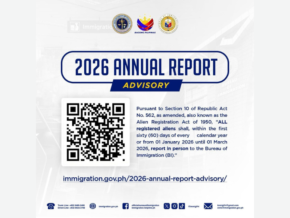WB, ADB, Business sector call for better foreign investment conditions
The government’s plans to improve the country via infrastructure projects, tax reforms, and transparency are mostly going according to plan, but the business community is still seeing more ways the country can grow on a more inclusive scale.
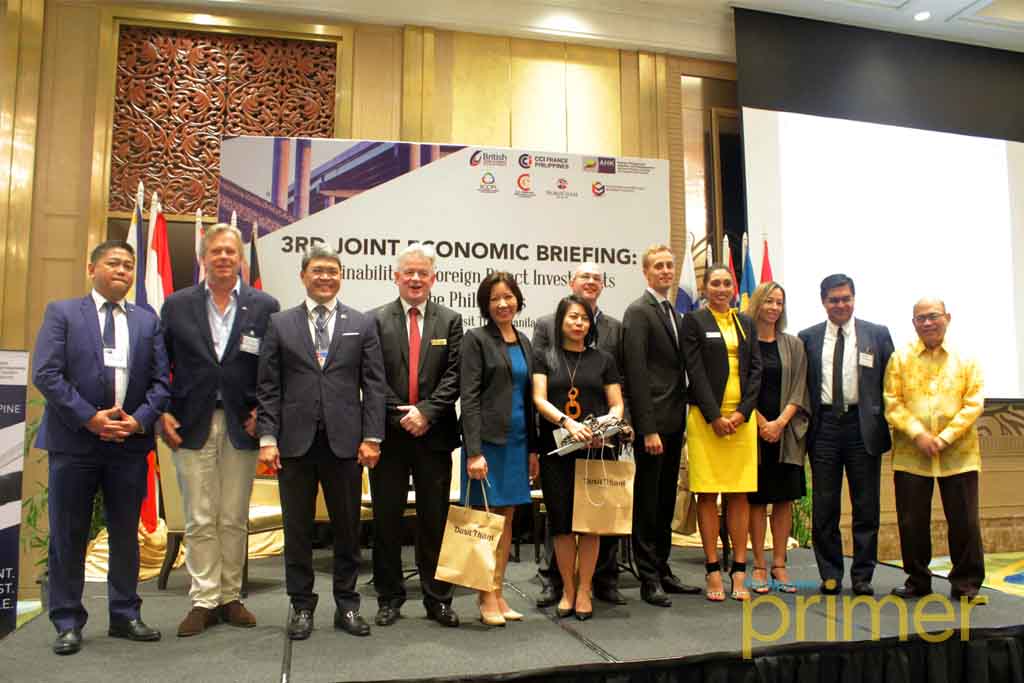 PRIVATE AND PUBLIC. Global and local, all banding together for sustainable investments. Representatives from the World Bank (6th from left), ADB (2nd from right), the Department of Transportation (3rd from left) and Department of Labor and Employment (5th from left) are joined by chairpersons and other representatives from the different chambers of commerce in attendance.
PRIVATE AND PUBLIC. Global and local, all banding together for sustainable investments. Representatives from the World Bank (6th from left), ADB (2nd from right), the Department of Transportation (3rd from left) and Department of Labor and Employment (5th from left) are joined by chairpersons and other representatives from the different chambers of commerce in attendance.
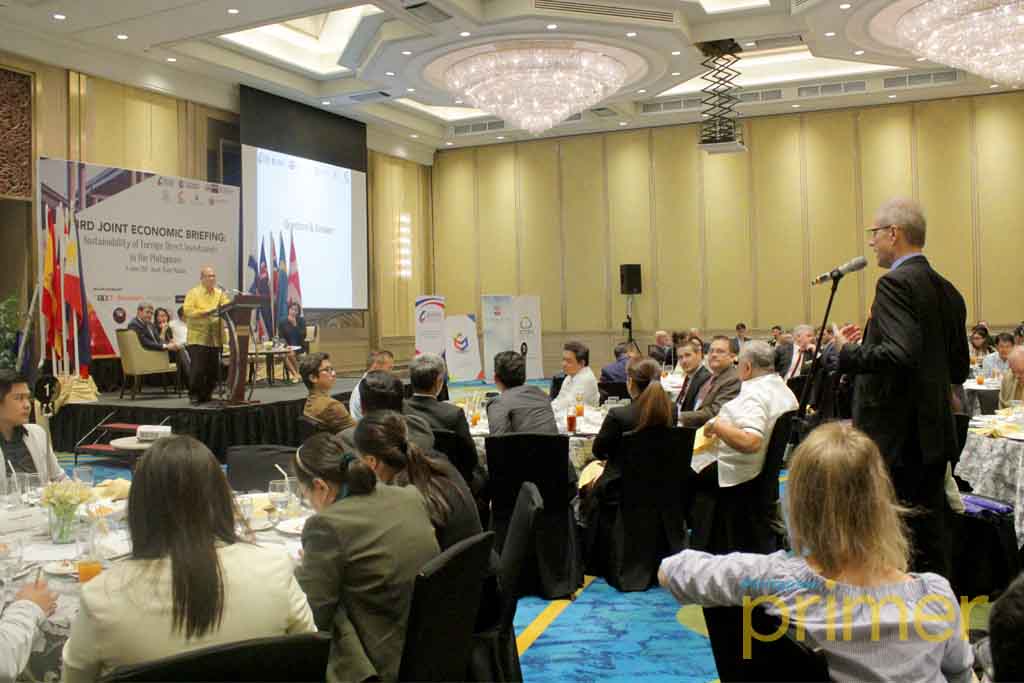 QUESTIONS TO THE PANEL. A member of the audience asks a question about labor issues during the question and answer portion.
QUESTIONS TO THE PANEL. A member of the audience asks a question about labor issues during the question and answer portion.
At the recently concluded Joint Economic Briefing, members from several chambers of commerce joined the World Bank (WB) and the Asian Development Bank (ADB) in calling for improvements to how foreign direct investments (FDIs) are handled in the country.
 EASE UP ON FOREIGN EQUITY. That was the bottom line for IFC-WB’s Senior Private Sector Specialist Farida Adji.
EASE UP ON FOREIGN EQUITY. That was the bottom line for IFC-WB’s Senior Private Sector Specialist Farida Adji.
Farida Adji, Senior Private Sector Specialist at the International Finance Corporation (IFC-WB) said the government should ease restrictions in certain business sectors to promote more foreign investments.
Adji also said that foreign firms tend to do better when compared to local firms. Taking data from the Philippine Statistics Authority in 2010 and 2012, she said foreign companies were more productive and gave better wages, as well as having more assets and handling exports better than local firms.
She also commended the country’s growth, but said that it is not as inclusive as they would like.
 PH NEEDS TO BE MORE INCLUSIVE, and ADB’s Regional Cooperation and Integration Division Director practically laid out a way for the government to either follow or adapt.
PH NEEDS TO BE MORE INCLUSIVE, and ADB’s Regional Cooperation and Integration Division Director practically laid out a way for the government to either follow or adapt.
Arjun Goswami, ADB’s Regional Cooperation and Integration Division Director, echoed most of Adji’s concerns. He pointed out that Southeast Asia has experienced an influx of FDIs, but that our country was lagging behind Cambodia, Laos, Myanmar, and Vietnam mostly from certain policies and competitive wages.
He also shed light on a previously-unknown fact: small and medium enterprises (SMEs) can both bring in FDIs and provide FDIs, and not just large multinational companies.
Representatives from the Department of Transportation (DOTr) and Department of Labor and Employment (DOLE) also graced the event, giving updates on what the government is doing at present to bring in more FDIs.
What the government is doing
DOTr USec. Garry de Guzman talked about the many transportation-related infrastructure projects under the administration’s Build Build Build, including the Mega Manila Subway, extensions to the Philippine National Railways and both Light Rail Transit lines.
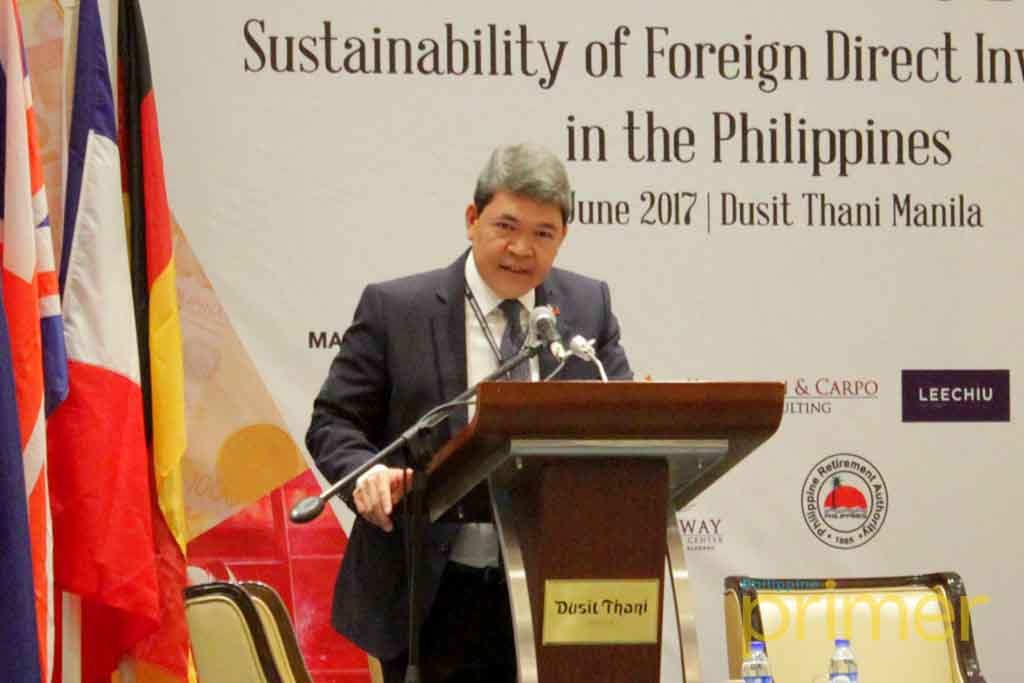 BEST TIME TO INVEST IN PH. USec. Guzman said “There has never been a better time to invest in the Philippines than right now,” and then proceeded to laying out the government’s ambitious infrastructure projects.
BEST TIME TO INVEST IN PH. USec. Guzman said “There has never been a better time to invest in the Philippines than right now,” and then proceeded to laying out the government’s ambitious infrastructure projects.
He also talked about opening up the country via a central spine RORO (Roll-on, Roll-off) to promote interisland travel as well as building and rehabilitating airports and seaports, saying that they are looking to decentralize trade activities in Metro Manila and spread it nationwide.
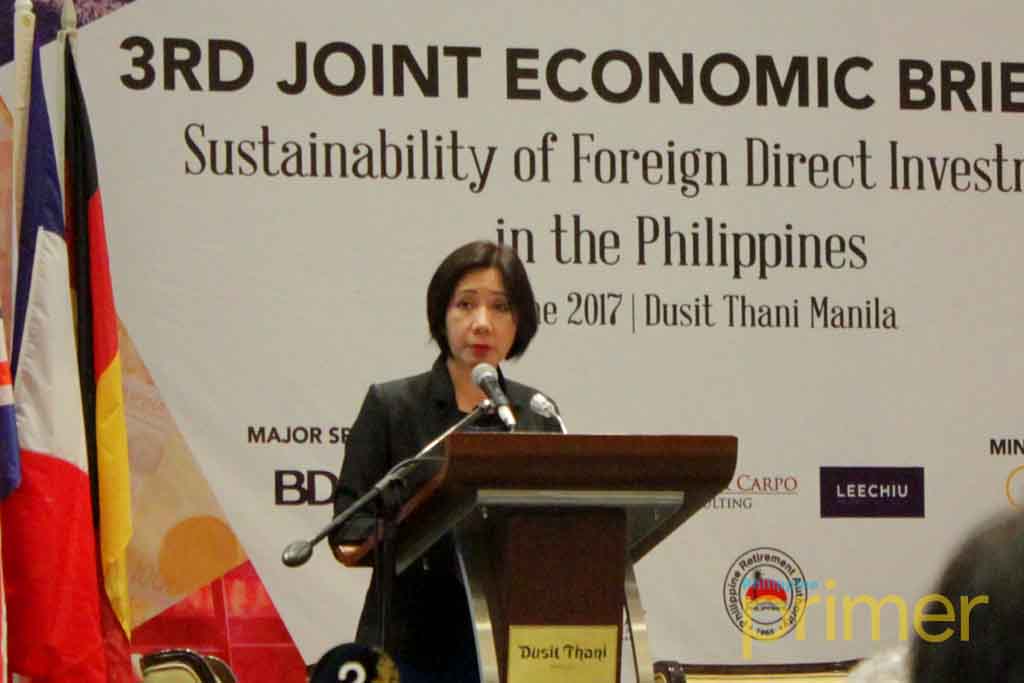 NO SUCH THING AS CONTRACTUALIZATION. DOLE’s Director for Employment and Policy Support Dominique Tutay did say contracting and subcontracting exist and are allowed, but there are caveats.
NO SUCH THING AS CONTRACTUALIZATION. DOLE’s Director for Employment and Policy Support Dominique Tutay did say contracting and subcontracting exist and are allowed, but there are caveats.
DOLE Director for Employment and Policy Support Dominique “Nikki” Tutay clarified that the term “contractualization” doesn’t really exist. “There is only contracting and subcontracting,” she said. She clarified several points about DOLE’s Department Order (DO) No. 174-17, which gave rules regarding contracting and subcontracting.
Included in the DO were illicit forms of employment arrangement, which included the following:
- Contracting out of work to an in-house cooperative
- Requiring employees to become members of the cooperative, and
- Other schemes, practices or arrangements designed to circumvent workers’ right to security of tenure, like the “555” scheme, were employees were under contract for only five months and then renewed.
The DO also removes the provision that an employment contract is “co-terminus with the service agreement”, i.e. your contract being as good as terminated once the service has been rendered. It also included what forms of contracting or subcontracting were allowed.
Tutay asked the chambers of commerce present to not only get in touch with DOLE to further improve their services, but also to engage with legitimate contractors only. A list of legitimate contractors can be found on the DOLE website, dole.gov.ph.
Written by Andronico Del Rosario





